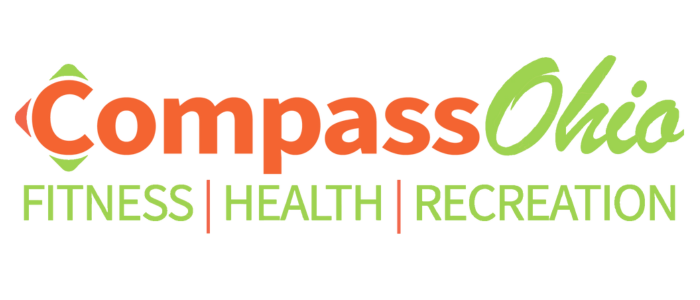Meredith, like most mothers entering their second pregnancy, wanted things to be different this time around. From the outset, she made her goal very clear to me: “This pregnancy, I just want to be overall more fit than the last pregnancy.” Although the goal was simple and straight forward, Meredith knew she needed a defined plan in order to achieve the results she was seeking.
During her first pregnancy with her son Tanner, Meredith gained 24 pounds but struggled through a 33 hour labor and pushed for a total of 90 minutes. She states, “It was very long and grueling, and while Tanner was totally worth it in the end, I want to see an improvement for this pregnancy.” Meredith continues, “It took me a good year to lose the weight that I wanted to after Tanner.” She also admits that her energy levels were really compromised from not being involved with a regular exercise routine.
When Meredith found out she was pregnant with her second child, the encouragement of her doctor prompted her to seek advice and guidance. I have had the privilege to work with Meredith for over two years as her trainer, but with this pregnancy we knew we had to re-evaluate our normal training programs. “I wanted to be fit and healthy and know that I was doing as much as I could to help my body during pregnancy,” said Meredith. Together, we created a plan that enabled her to gain a healthy 10 pounds and cut her labor to 11½ hours. “I pushed for 7 minutes,” Meredith happily exclaimed. Only two weeks after the birth of her daughter Avery, Meredith was below her pre-pregnancy weight with enough energy to keep up with Tanner, 2½ years old, as well as care for her newborn.
A pleasant and unexpected surprise Meredith experienced along her journey was the mental benefit from her training. Meredith states, “I also felt like I was so much more mentally prepared. Josh is always harping on ‘get your mind right’, and that played a huge role in this labor and delivery.”
The staggering improvements between her pregnancies were obvious. So the question remains: What major changes were made in order to achieve such a difference?
It should go without saying that because everyone is different, likewise, every pregnancy is different. All prenatal training is relative to the individual and should be modified to meet their specific needs. If you were exercising regularly before your pregnancy, you should be able to continue in moderation. It would have been completely detrimental and perhaps disastrous for Meredith to continue training at the high intensity that she was before her pregnancy. We had to progress, and in some cases regress, her training depending on her current state and with her baby’s best interest in mind. It is important to mention that prenatal training is not just for the mother’s benefit, but for the baby’s as well.
The myth of not exercising while pregnant has been invalidated by the research and studies carried on by elite health professionals of the modern era. Do not fear exercising while pregnant. The leading health care providers strongly recommend regular exercise for expectant mothers. In fact, The American College of Obstetrics and Gynecology recommends 30 minutes or more of moderate exercise per day on most, if not all, days of the week.
That being said, there are certain limitations to be aware of while exercising during pregnancy. Most women experience significant fatigue in the second month of pregnancy. This is not a sign to give up on exercise for the remaining 7 months. Instead, realize that by exercising, you are combating the fatigue that is zapping your body’s energy. Remember, something is better than nothing. Even a 20-minute walk in the neighborhood or a few laps in a swimming pool will help release endorphins–the chemicals in your body that are responsible for improving your mood and energy level. Throughout the first trimester, most exercises are considered safe.
Things differ slightly in the second trimester. Meredith was able to work out regularly throughout this time, although we monitored her heart rate a little more closely. In any given training session, I would ask how she was feeling probably a hundred times. To me, this is an even better indicator of her work rate than checking her heart rate, because as I mentioned earlier, a target heart rate will naturally differ from person to person. Instead, I would have her say in her own words if she felt normal, dizzy, exhausted, out of breath, etc. These were all trigger words that I would assess to tell her to stop, modify, or continue her exercises during our sessions. Really be mindful about how you are feeling during exercise and take the necessary steps not only to avoid a dangerous situation, but also to maximize your training efforts.
By the third trimester, you may start feeling that any type of exercise is getting much harder. Again, something is better than nothing. Continue doing some type of exercise, even if in shorter bouts or at a lower intensity. Know the difference between fatigue and pain. If something you are doing is painful, modify or stop the movement altogether. Movement modifications at this point are pivotal for increasing the chances of a safer, easier delivery. For example, there were times when I had Meredith sit on a bench instead of stand during an exercise to keep any dizzy spells from happening. Being aware and implementing simple modifications like that can make all the difference in a successful prenatal workout routine. I also strongly recommend a heavy dose of stretching exercises and staying hydrated during this time. Dehydration is one of the main triggers of an early labor or contractions.
I strongly encourage you to take advantage of all those doctor visits during your 9-month process. Your regular pregnancy checkups are a great time to make sure your exercise program is safe with your doctor. If you need help getting started, be sure to seek out a qualified fitness professional or health coach to assist you on your journey.
I love how Meredith says that pregnancy should not be seen as a limitation. She is absolutely right. In her own words: “Honestly, working out the entire pregnancy was one of the best things I could have done for myself both physically and mentally. I cannot stress enough all the benefits. I would tell other mommies in a heartbeat that working out will do so many things for you to help deal with physical changes, emotional and hormonal changes, and all the little bits and pieces that go together when growing a baby. Best decision I could have made for myself, my baby, and my family.”

Pregnancy and working out





